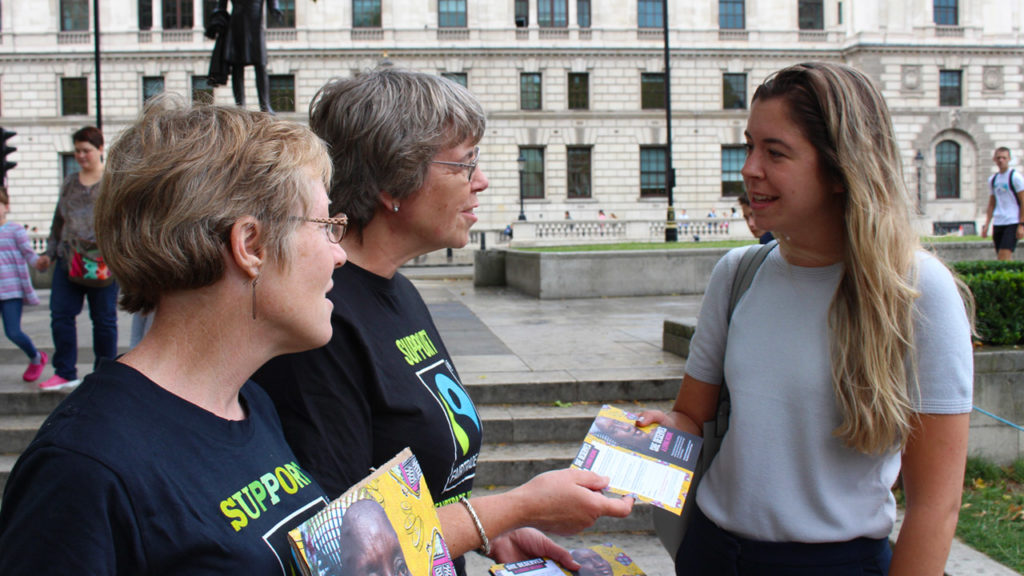Any meaningful social change you can think of, from the abolition of the slave trade to schools’ strikes for climate change, started with a conversation which questioned beliefs and norms.
The Fair Trade movement is no different. For issues that need a collective response, meaningful and engaging discussions are the backbone of change.
Why is that?
Because what we see as important and interesting is something that is built through conversations with others.
Social psychology tells us that if we do not hear others talking about a certain issue, then we do not see that issue as important. This invisibility slows down any meaningful change around that issue. Even more interestingly, not being able to connect with others by discussing about matters we deeply care about can result in distress.
So, making those conversations count is vital.
We need to know what to say, and how to say it so it makes a difference. Here are five things that can support engaging and informative discussions and drive action.
1. Apply value framing
This refers to tapping into our basic human values which explain the bigger reason behind your message, to find common ground and make it resonate with more people. Some values work across audiences, such as encouraging people to think compassionately about others including animals and thinking about their impact on future generations.
2. Use metaphors
Metaphors can help convey concepts effectively by making them more vivid and memorable. This makes them easier to understand and increases the confidence of the listener in repeating that information to another person. Effective metaphors should:
- Be factual
- Be novel enough to excite interest
- Use a familiar domain to explain the unfamiliar .
A great example in climate change conversations is that tropical rainforests are often called the ‘lungs of the planet’ because they generally draw in carbon dioxide and breathe out oxygen. In Fairtrade, the Minimum Price acts as a ‘safety net’ when the market price falls below farming costs.
3. Have even-toned conversations
Focusing on a give-and-take dialogue creates more positive, more influential experiences. When we consider what others are thinking and feeling it makes them more receptive to new information. For example, where we encounter misinformation, we can calmly use accurate information to address it after having actively listened to what the other person has to say.
4. Normalise taking action
As we’ve already seen, our words shape our responses to our shared reality. This is why it is also important to talk about the actions we are taking to bring about change. So, no matter how you are getting involved, from buying Fairtrade to running a school event, share your activities, and your motivation, with your friends, family and social media networks.
5. Suggest achievable next steps
Hope grows from the ability to see an action we can take to achieve a certain result. Complex issues, like climate change or unfair trade, can feel overwhelming. But if we can offer ways for people to act within their own sphere of influence, from going meat-free once a week to organising a community litter pick, they feel that they can be part of the solution.
So connecting with others about issues that matter to us not only allows us to express ourselves, but it also takes us one step closer to the change we want to see. In the marathon of social change, every conversation counts, even if we don’t see the results straight away.
References: Swim, J.K, Geiger, N, Sweetland, J., & Fraser, J. (2018). Social construction of scientifically grounded climate change discussions. In S. Clayton & C. Manning (Eds.), ‘Psychology and climate change: From denial and depression to adaptation and resilience’. San Diego, CA: Elsevier.
